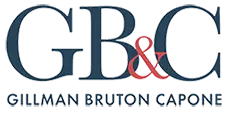Since 2007, homeowners who conducted short sales and other loss mitigation alternatives on their properties were able to exempt any income associated with their mortgage company’s write-off of any debt under the federal mortgage forgiveness act. However, Congress allowed the important tax exemption to expire effective December 31, 2013. See http://www.nytimes.com/2014/02/05/business/economy/lenders-see-write-off-while-underwater-homeowners-face-stiff-taxes.html?ref=todayspaper&_r=1
While Congress may choose to renew the exemption, it places a burden on homeowners considering their options with properties facing foreclosure which are “underwater”.
As experienced bankruptcy and foreclosure attorneys, we have often counseled clients in similar positions to file a Chapter 7 bankruptcy case, assuming they qualify for the relief under the Code. If a homeowner files a Chapter 7 bankruptcy case and receives a discharge before the property is lost in a foreclosure – or before the homeowner conducts a deed in lieu of foreclosure or bank-approved short sale of the property – the underlying debt owed to the bank is “discharged”. Thus, even if the mortgage company later conducts a “write-off” of the portion of the mortgage which was not paid and issues a 1099-C (Cancellation of Debt) Form to the homeowner, the homeowner will be able to exempt that “income”. A taxpayer who has filed and received a discharge in a Chapter 7 bankruptcy case can file, with their tax return, an IRS Form 982 and properly claim an exemption on any such income.
This only strengthens the argument that any property owner facing foreclosure or a potential foreclosure and considering their options consult with an attorney experienced in foreclosure and bankruptcy law to better know their rights and options.


